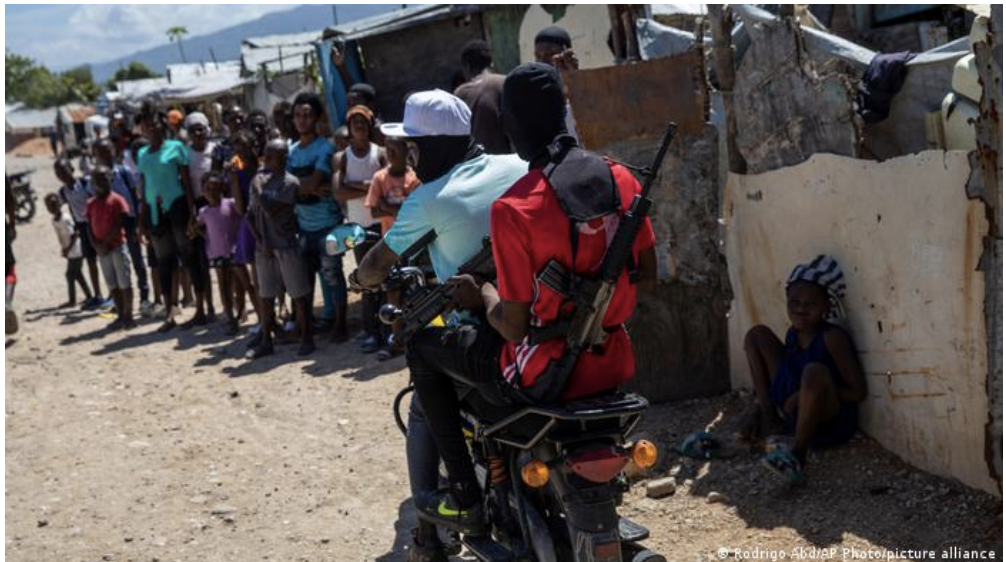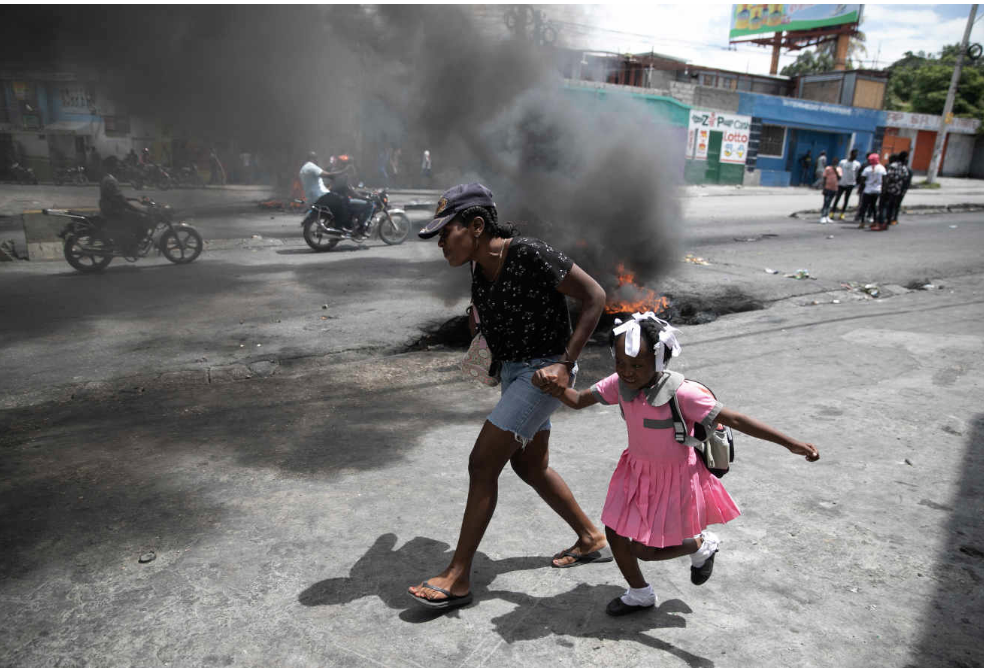Gang Wars Wreak Instability in Haiti
Unfortunately many districts in Haiti are already dominated by crime. Photo: DW News
Fights in Haiti have led to at least 20 deaths in the past few days, as rival gangs battle each other for control. Residents of the northern suburbs of Port-au-Prince have been suffering a devastating gang war since Sunday, April 24.
Over five days, the suburbs northeast of Port-au-Prince have become plagued by deadly clashes between rival gangs. Civil protection advances a first assessment that hundreds of people have been displaced. The Chien Méchant and 400 Mawozo armed groups are violently fighting for control of the popular neighborhoods of this area, located in Haiti’s metropolitan region.
According to an initial assessment by Civil Protection, at least 20 civilians were killed between April 24 and 26, including a family of eight, three young women and three children, as reported by Frantz Duval, editor-in-chief of the Newbie. Several dozen families took refuge in a public square and adjacent neighborhoods to escape the fury of the gangs.
With this new conflict in Cul-de-Sac, the Haitian authorities are losing control of the national road Number 1 which connects the capital to departments of the North as well as the Artibonite.
A woman and a child try to find their way during a demonstration against the violence in Port-au-Prince, Haiti, March 29, 2022. Photo: Odelyn Joseph/ Le Monde
The situation with gangs in Haiti is especially problematic because the country lacks structure to control armed organizations throughout the country. Haiti does not have an army, and has seen ruthless coups and political instability since its revolution and independence from France in 1804. Even though Haiti needs a strong security force to go after its gangs and violent groups, the country’s political structure rejects having a military.
The country's police force is also insufficient to counter rising gang power. According to many sources, Haiti’s gangs are better armed than its police forces. Even top Haiti cops hesitate to patrol areas in Port-au-Prince under the control of armed groups like G9.
In addition, the finances of the state have long been bankrupted for different causes, including elevated corruption, inefficient tax revenues, and political fluctuation. It is estimated that almost 70 percent of the country’s GDP has been financed by Haitian migrants living in countries like the US, Canada, and France, as well as foreign aid from the US, UN, and other international groups.


